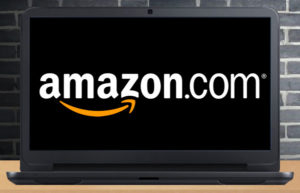
Portfolios of task-oriented mobile apps for employees, contractors and business partners have been transforming the way enterprises conduct business, Apperian reported last week.
Companies that have launched mobility initiatives have customized and deployed one or more apps that have streamlined business operations, according to “Deploying Mobile Apps That Matter: 2015 Enterprise Mobile App Trend,” the firm’s analysis of 2 million app deployments.
Apps proliferated after a mobility initiative was launched, the report says.
The report covers companies with a handful of mobile apps in use, as well as those with several hundred deployed across the organization. However, the number of custom apps deployed appeared to have little or no bearing on their combined effectiveness.
Enterprise apps were less about brand indoctrination and more about getting the job done. They were used as tools for sales, marketing, office productivity, expense management, human resources and other areas.
The most effective enterprise apps save employees the trouble of searching for the information they want or need, said Scott Borg, director of theU.S. Cyber Consequences Unit.
“Instead, they push out the specific information to employees that is needed to guide and optimize their work,” he told the E-Commerce Times. “This is easier to do if there are specific apps for specific work situations.”
Tech companies have been leading the way, with hardware companies deploying the most enterprise mobile apps and IT services firms following in second place, according to the report.
The Appification of the Enterprise
The Apperian report is evidence of the enterprise’s evolution from consumerization to appification, said Andy Abramson, CEO ofComunicano. Enterprises have matured from tolerating the bring-your-own-device phenomenon to embracing it and putting consumer hardware to work.
“By going the appification route, you end up with greater efficiencies, better security, better redundancies, higher scalability — and if you choose properly, greater reliability,” he told the E-Commerce Times.
Previously, the likes of Microsoft, IBM and SAP dominated the working world, noted Abramson. They built and empowered workstations, but even Microsoft has acknowledged the ascendance of mobile and cloud technologies, and the company has embraced appification.
Workers now are using tablets and mobile phones to accomplish tasks that once required a workhorse workstation.
Good With the Bad
With apps in force across the workforce, there are new benefits — but some of the same problems linger.
One of the benefits of appification has been scalability, Abramson said.
“The rapid acceptance in enterprise of cloud-based solutions like Salesforce Basecamp, Slack, HipChat, Zendesk and so on is all giving rise to the app economy, as opposed to the software economy,” he pointed out. “You’re no longer installing software on your computer. You’re buying seats.”
For example, take Slack’s model, Abramson suggested. If a company buys more seats than it can use, it’s eligible for a refund. Under the old model, a company that bought too many installations of a program had to count the unused keys as a loss.
The rise of custom apps for enterprises also has been good for the developers companies often place under contract, he said. MeetingMogul, for example, started out as a conference planning app for a global bank but grew into its own platform.
For all of the good things the rise in apps delivers, there remains the chronic issue of compatibility, noted Gary Schare, president ofBrowsium.
“Look at your phone — 10 apps have been updated overnight,” he told the E-Commerce Times.
IT departments usually aren’t in the position to deploy an app and change it constantly, Schare said.
“Now you have to think about how to build mobile apps for the enterprise and maintain them, because everything around it, including the OS, is changing constantly,” he said. “You have to have some really sophisticated tools to ensure that apps continue to run, as you have 100,000 employees in your company carrying around smartphones with mission-critical applications.”
Another issue is app bloat, according to the U.S. Cyber Consequences Unit’s Borg.
Releasing too many apps can make it harder for employees to choose the right one at the right time. On top of that, some apps are becoming “too elaborate” to be truly useful, he said.
“Worse, each additional app tends to increase the opportunities for a cyberattacker,” Borg warned. “The processes used to load and update apps tend to be especially vulnerable to exploitation if they aren’t managed with security as the top priority.”




















































Good read, thanks for sharing, I completely agree enterprise Appification is here..